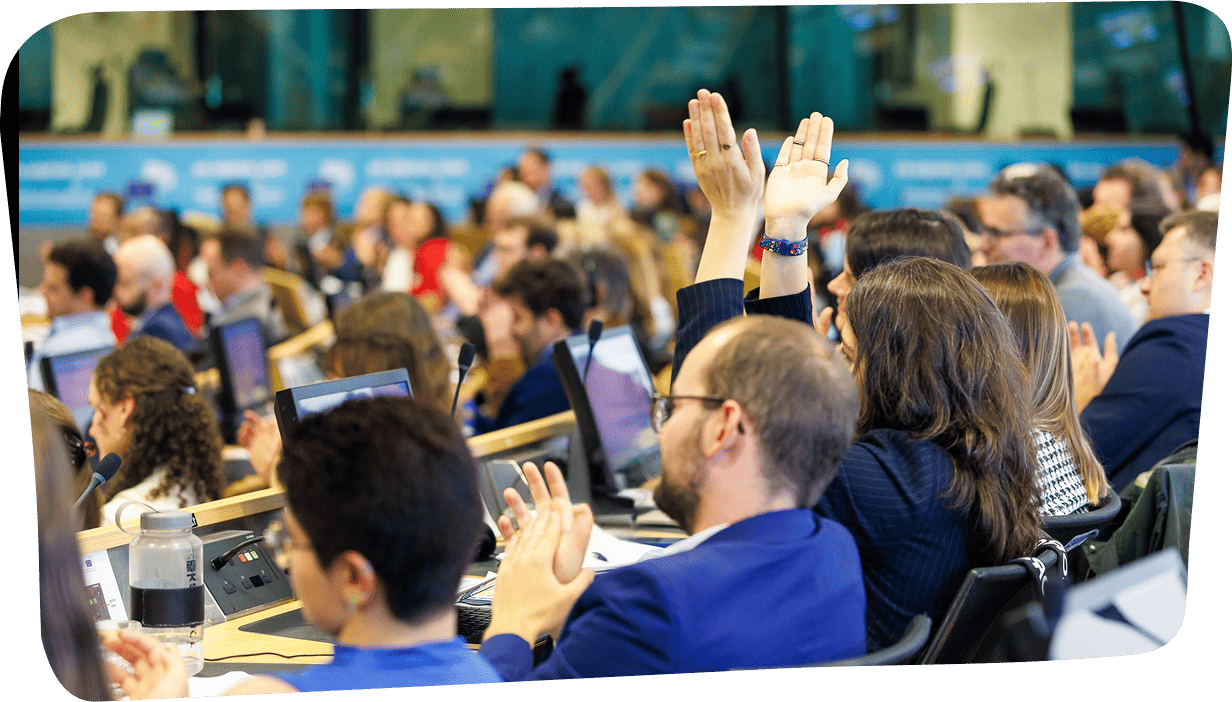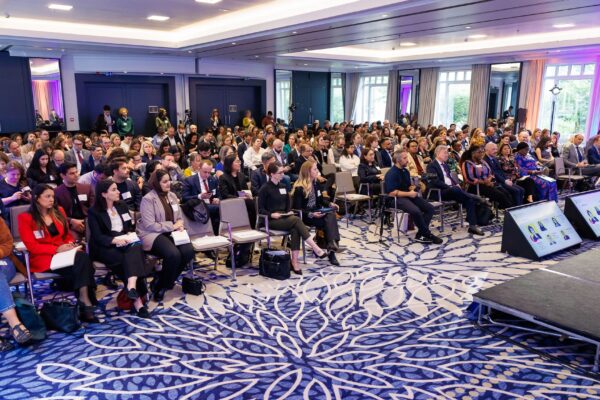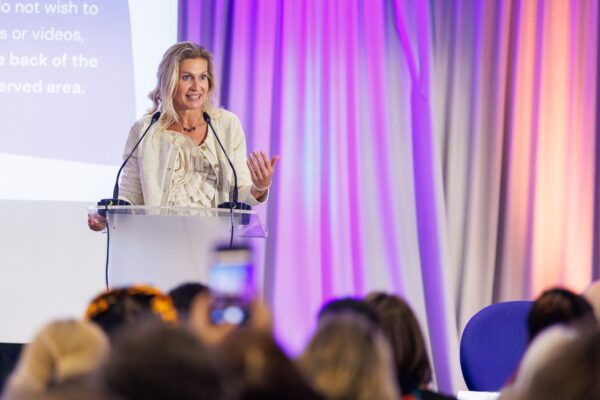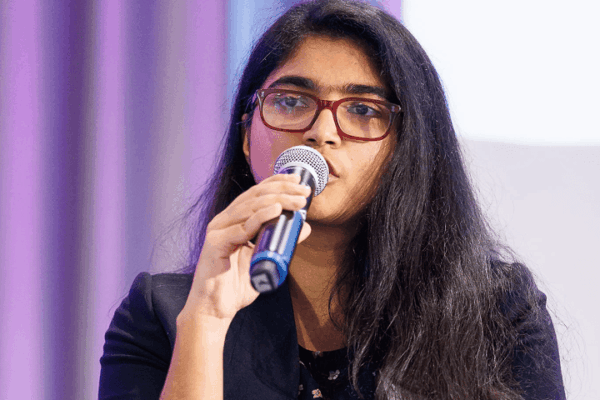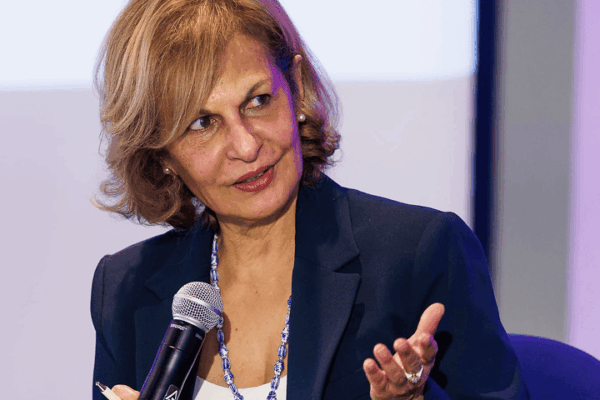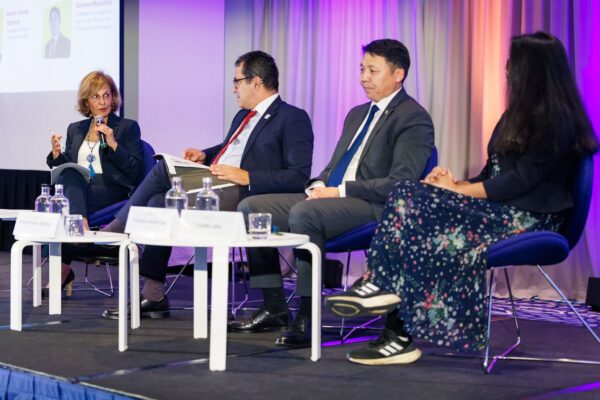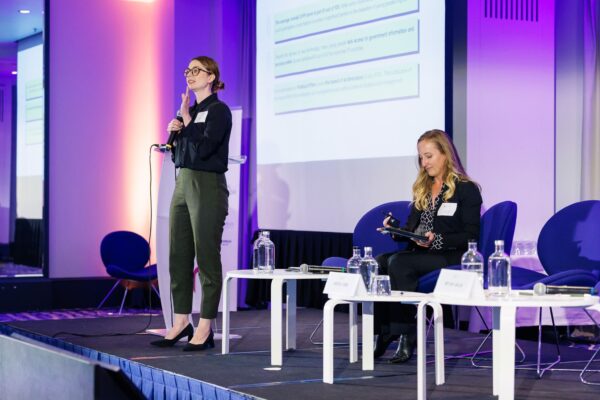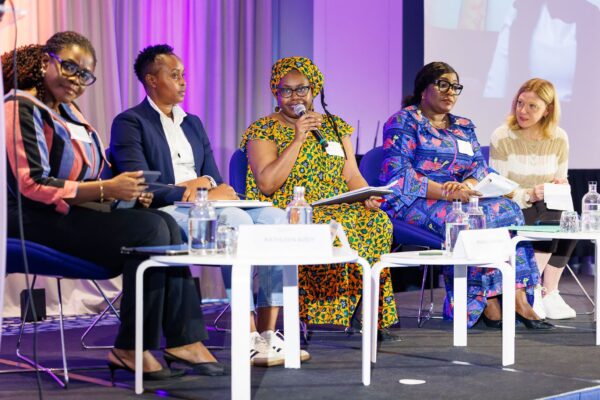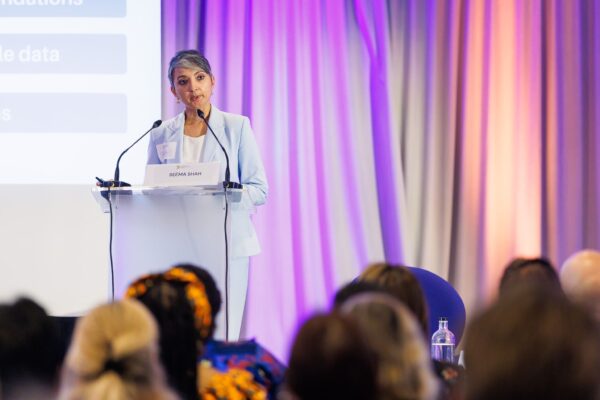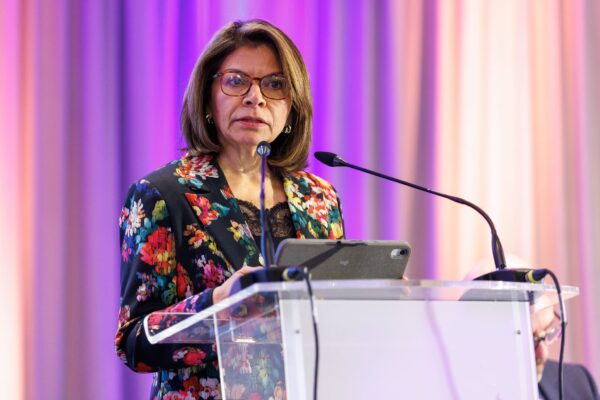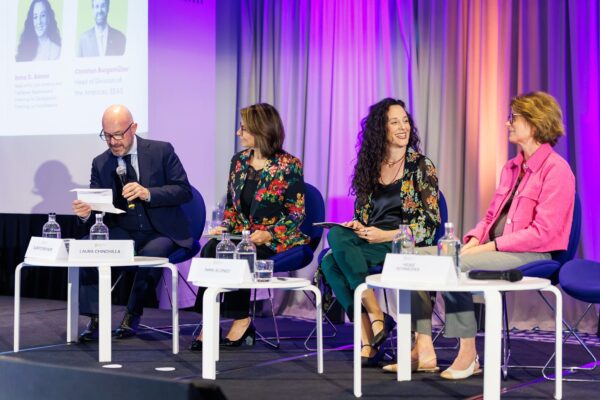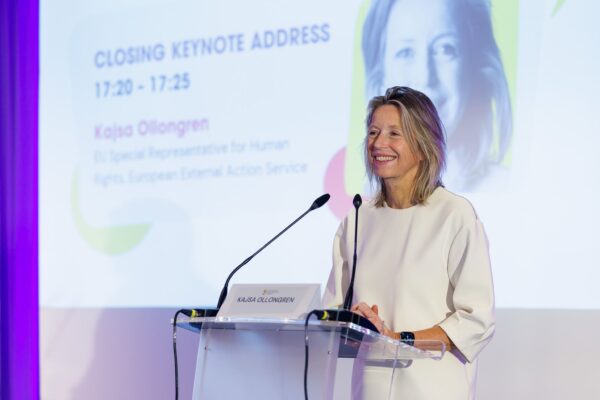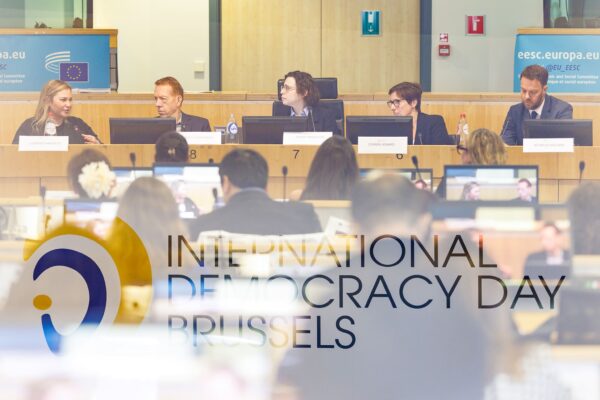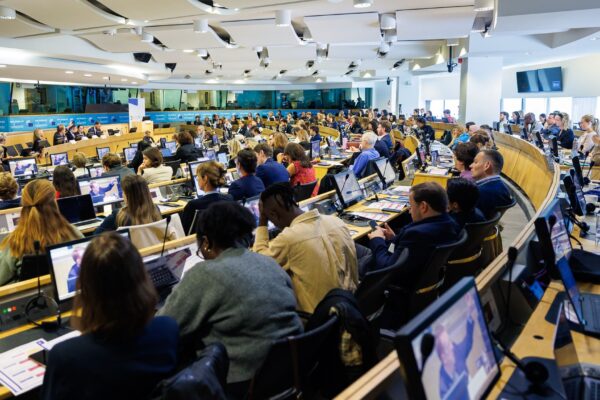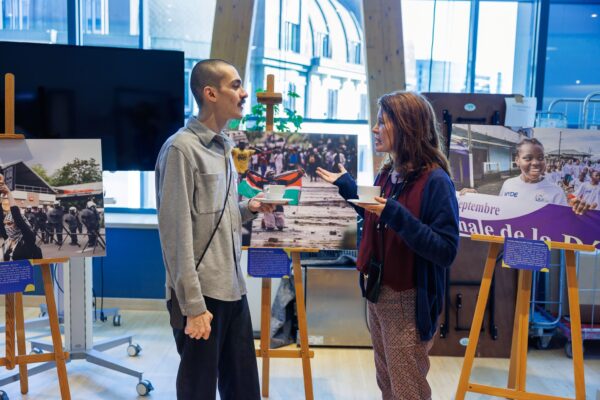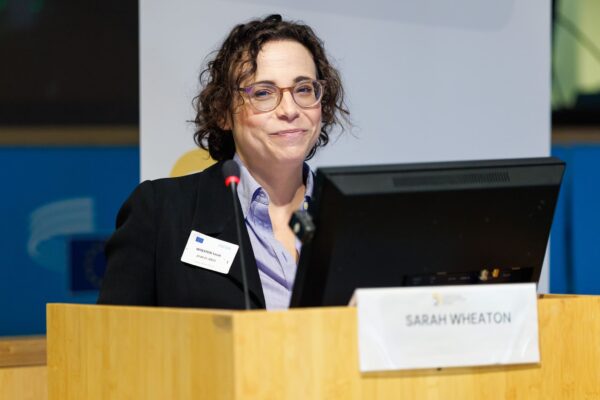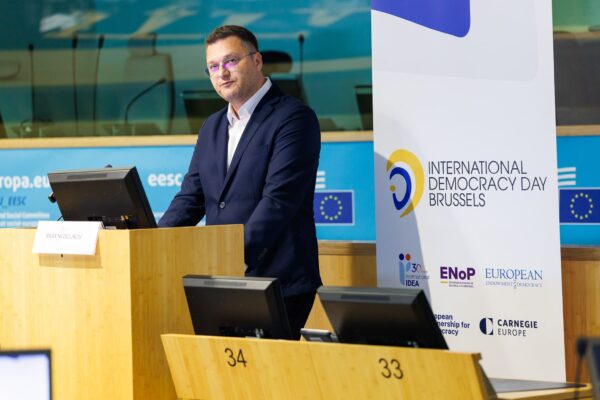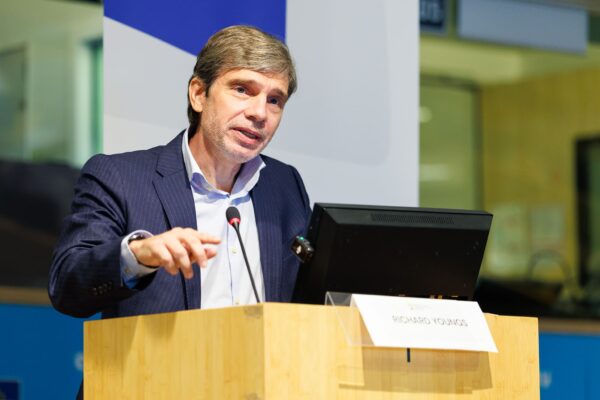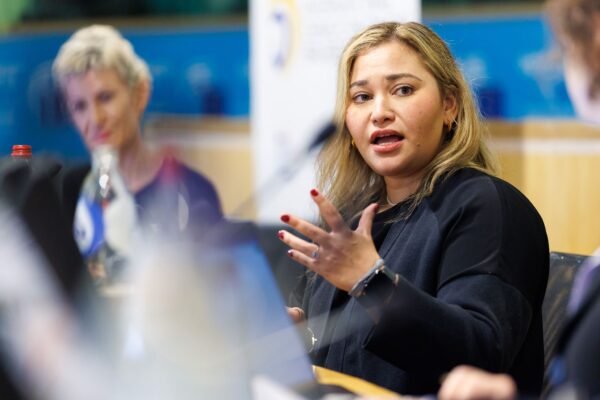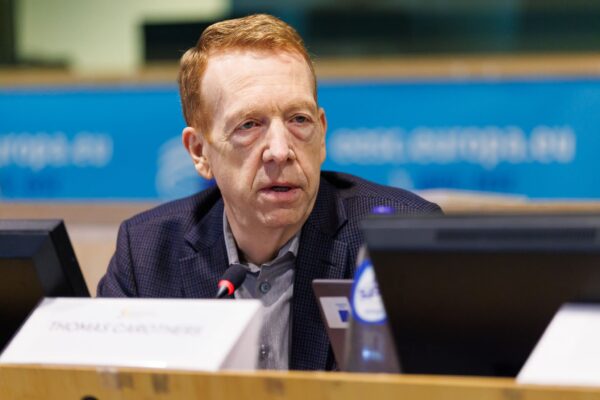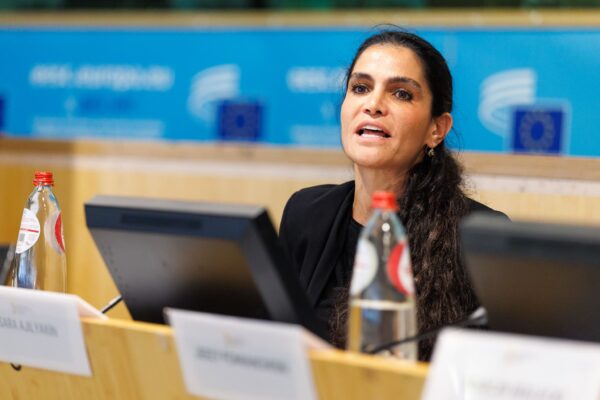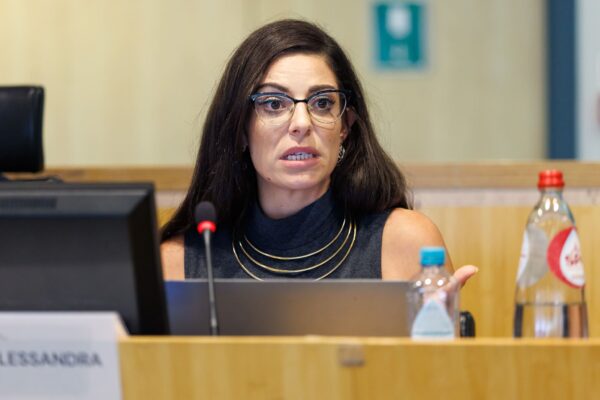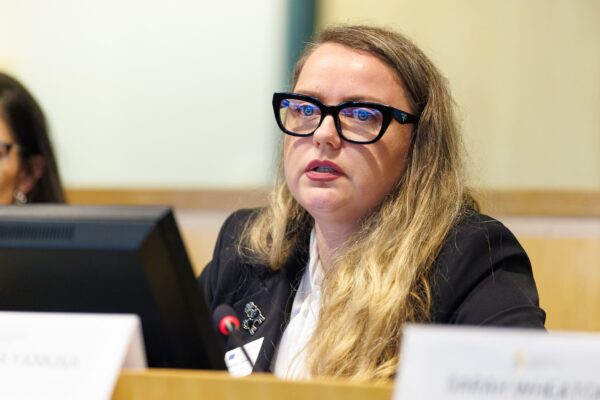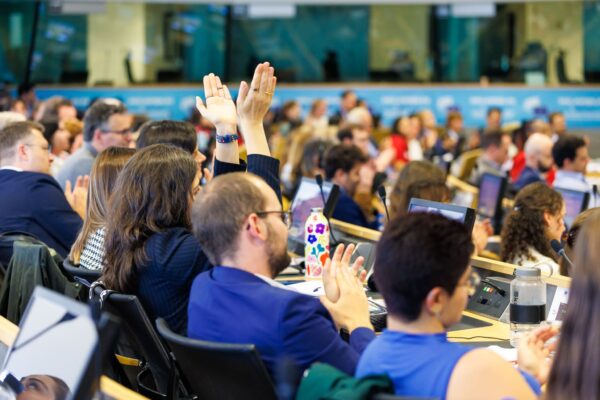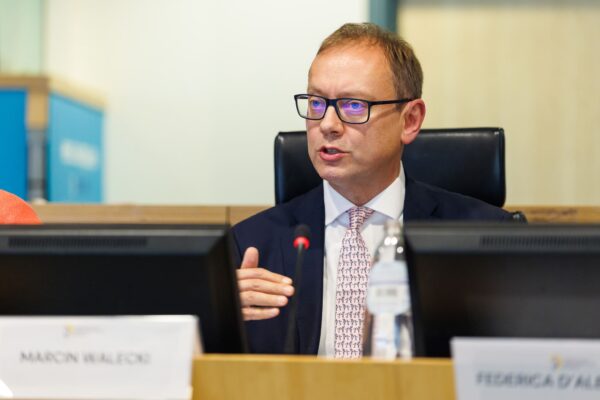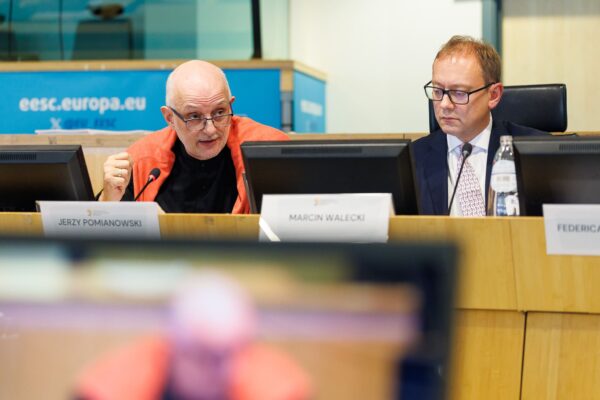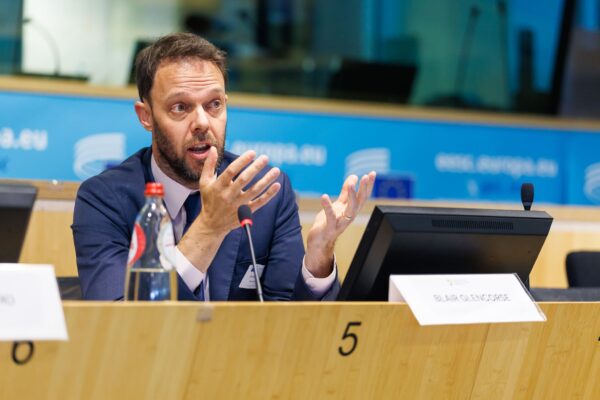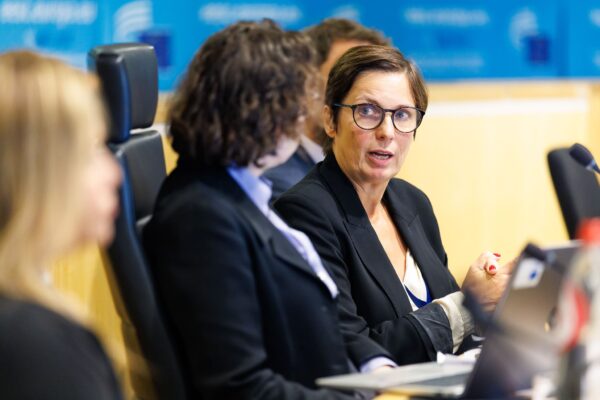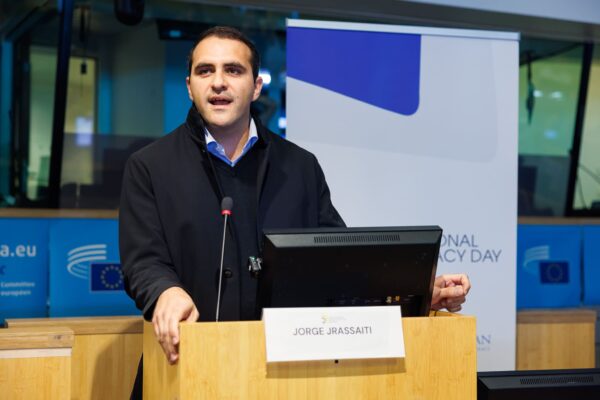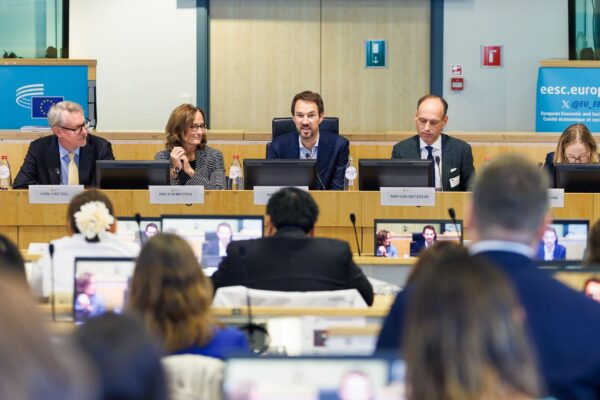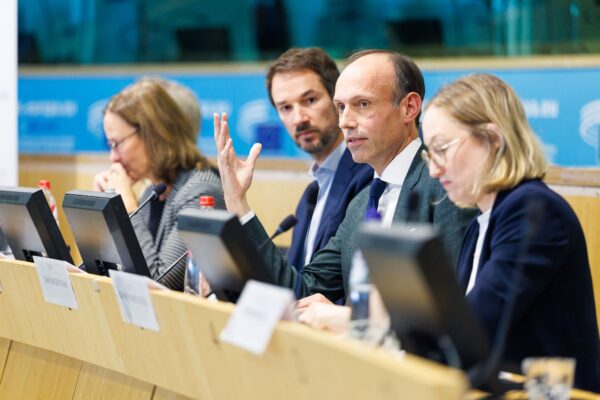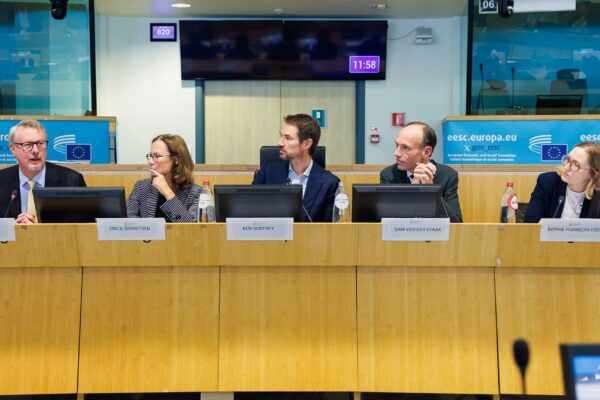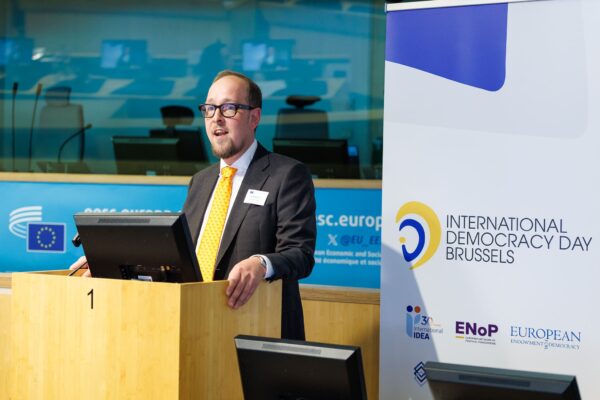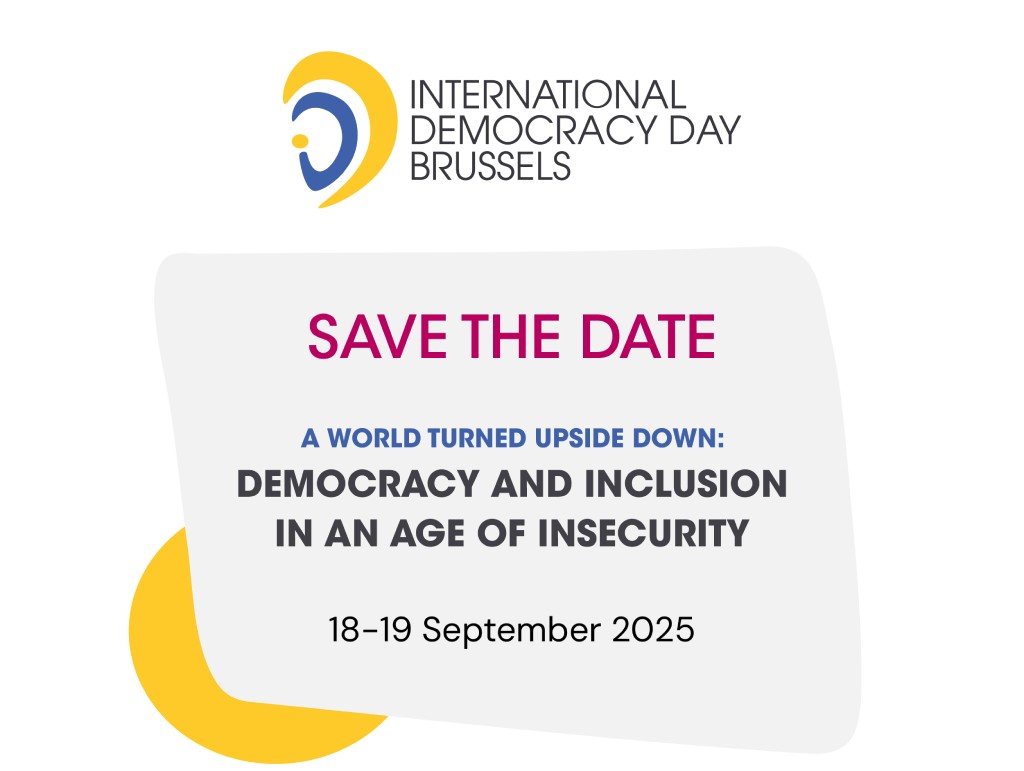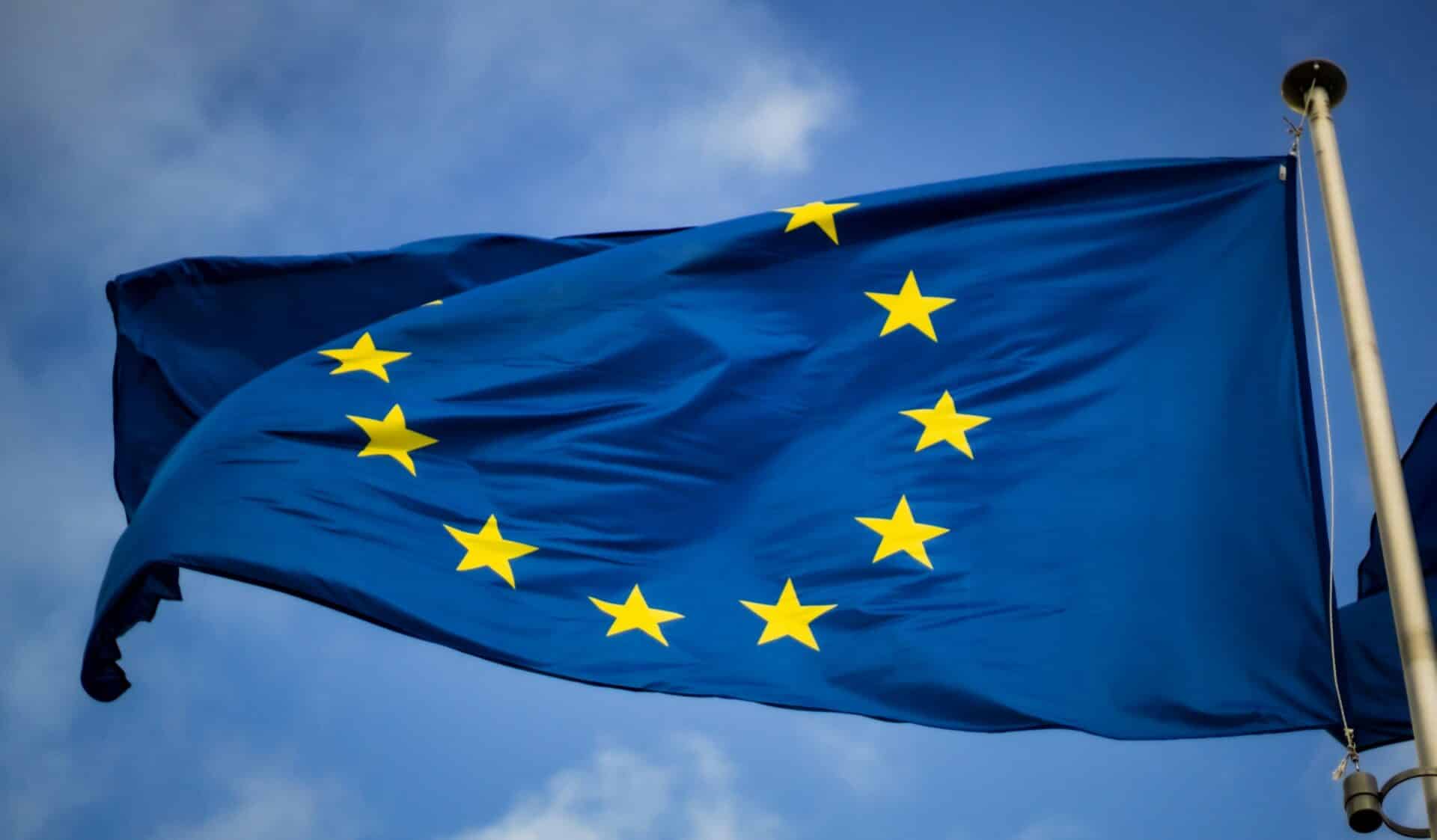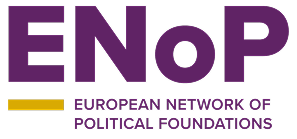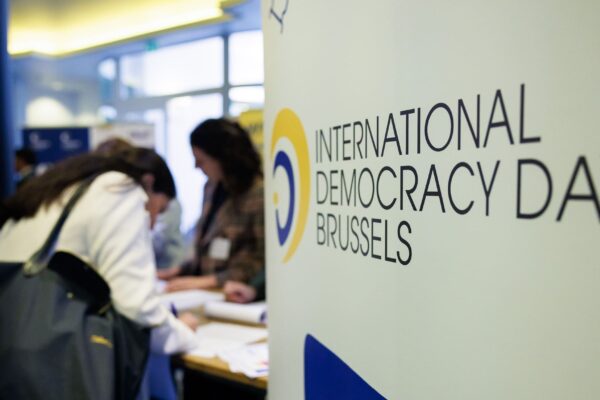
THIS WAS IDD BRUSSELS 2025
INSIGHTS FROM OUR FEATURED SPEAKERS
THANK YOUR FOR ATTENDING
The 2025 edition of the International Democracy Day Brussels Conference brought together over 600 participants from across the world to explore the evolving relationship between democracy, inclusion, and security. Under the theme “A World Turned Upside Down: Democracy and Inclusion in an Age of Insecurity,” the conference addressed how democratic resilience depends on truly inclusive societies—both within Europe and beyond. With today’s increasing threats to democratic norms, from disinformation to geopolitical tensions, the event called for stronger partnerships and more responsive tools to support democracy in fragile times.
Held across two days and two venues—the Renaissance Hotel and the European Economic and Social Committee—the conference featured high-level panels, expert lightning talks, and interregional dialogue. Opening keynotes from Commissioner Dubravka Šuica and leading democracy figures such as Kevin Casas-Zamora, Emma Theofelus, and Tasnim Jara underscored that inclusion, particularly of youth and women, is not only a moral imperative but a practical one for building lasting peace and cohesion. The central session on Women and Youth Democratic Engagement (WYDE) brought powerful voices from across Africa, with speakers sharing personal testimonies and strategies to reform political parties and empower grassroots leadership.
Throughout the programme, speakers explored how Europe can lead by example—by embedding democratic values in its external action, fostering civil society cooperation, and adapting financial instruments to better serve democracy support in the Global South. The discussion around the EU’s future budget highlighted growing consensus on the need for dedicated, protected funding for democracy and human rights, while others stressed the importance of linking democracy efforts to broader agendas such as climate action, gender equality and digital participation.
On the second day, participants were welcomed by EESC President Oliver Röpke and Commissioner Marta Kos, who called for bold thinking on enlargement and the role of civil society in safeguarding democratic transitions. Speakers such as Thomas Carothers, Kajsa Ollongren and Richard Youngs urged the EU to renew its democratic ambition both internally and in its foreign policy, calling for more co-created, flexible and sustainable approaches. The conference closed with a strong reminder that democracy remains a pillar of stability, inclusion and development, particularly in contexts marked by conflict or authoritarian backsliding.
IDD Brussels 2025 was organised jointly by International IDEA, the European Network of Political Foundations (ENoP), the European Endowment for Democracy (EED), the European Partnership for Democracy (EPD), and Carnegie Europe. The event was supported by the Global Democracy Coalition and took place within the framework of the Women and Youth Democratic Engagement (WYDE) programme. Across both days, more than 500 people attended in person and 34 speakers from all continents took the floor. In an increasingly uncertain world, the message from Brussels was clear: inclusive democracy is not optional—it is essential.
GALLERY
A new edition | A new vision | Coming soon |
A new edition | A new vision | Coming soon |
A new edition | A new vision | Coming soon |
A new edition | A new vision | Coming soon |
A new edition | A new vision | Coming soon |
A new edition | A new vision | Coming soon |
A new edition | A new vision | Coming soon |
A new edition | A new vision | Coming soon |
INTERNATIONAL DEMOCRACY DAY BRUSSELS

The International Democracy Day Brussels Conference (IDD Brussels) is an annual event that brings together leading voices in democracy support, governance, and civic engagement. Since its inception, the conference has served as a platform to foster dialogue, share expertise, and build partnerships among policymakers, civil society representatives, researchers, and international organisations.
Organised by a consortium of European and global partners, IDD Brussels aims to highlight the value of democracy as a cornerstone of security, prosperity, and inclusive societies. Each year, the conference offers space for critical reflection on democratic trends, challenges, and innovations, connecting experiences from Europe and around the world.
Now in its eleventh edition, IDD Brussels continues to provide an opportunity to exchange ideas, showcase success stories, and inspire collective action to defend and advance democratic principles.
We invite you to explore previous editions of the conference below to learn more about past themes, speakers, and outcomes.
PAST EDITIONS
IDD through the years.
VOICES FROM PAST EDITIONS
“If governments care about migration, they should care about democracy. If governments care about poverty, they should care about democracy. If government care about corruption, they should care about democracy.”
Leopoldo LópezVenezuelan Oppositon Leader
“If you want change, go to the youth.”
Pita LimjaroenratFormer Prime Minister of Thailand
“Living in Palestine as a journalist has always been challenging, but in the current situation we are even more afraid to speak up because, as journalists, we are a target.”
Riham Abu AitaFreedom of Expression Advocate
LATEST NEWS
Stay informed with the latest updates, insights, and highlights from the world of democracy and European policy.
ORGANISING PARTNERS
WITH THE SUPPORT OF
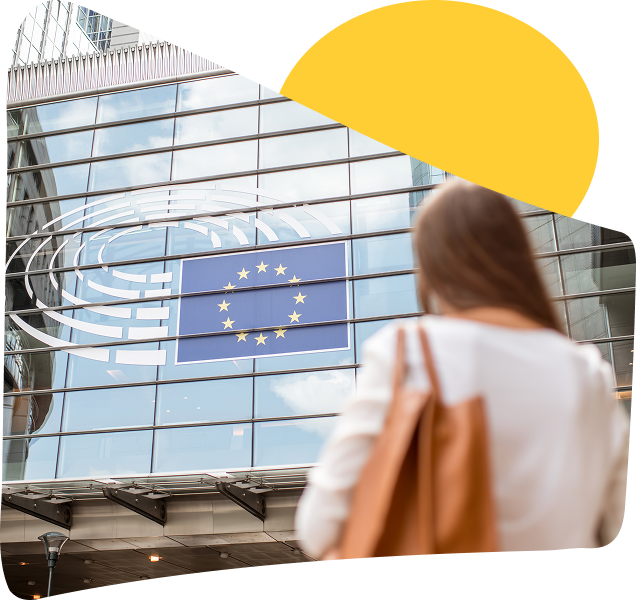
CONTACT US
If you have any questions about the event, registration process, press enquiries, or practical details, please feel free to get in touch.
